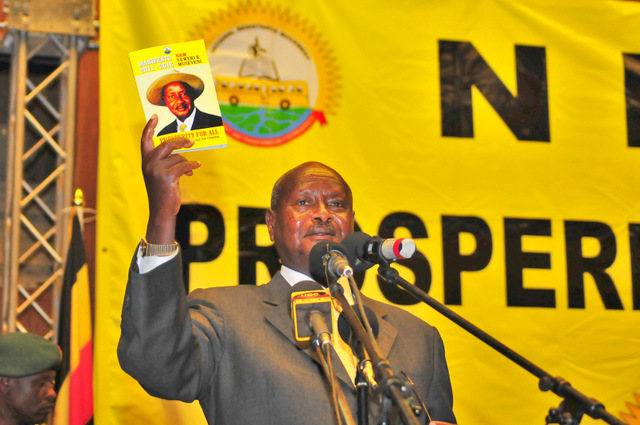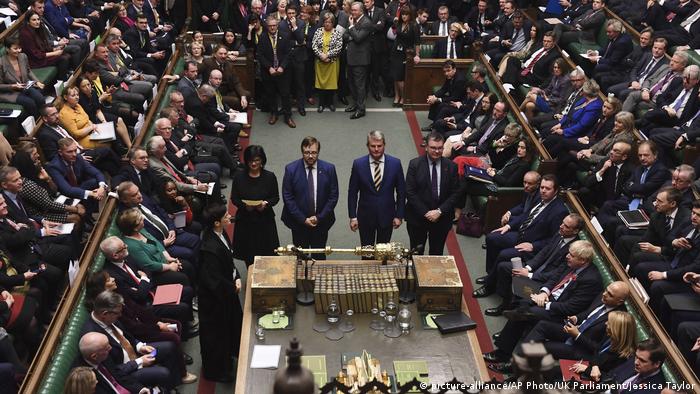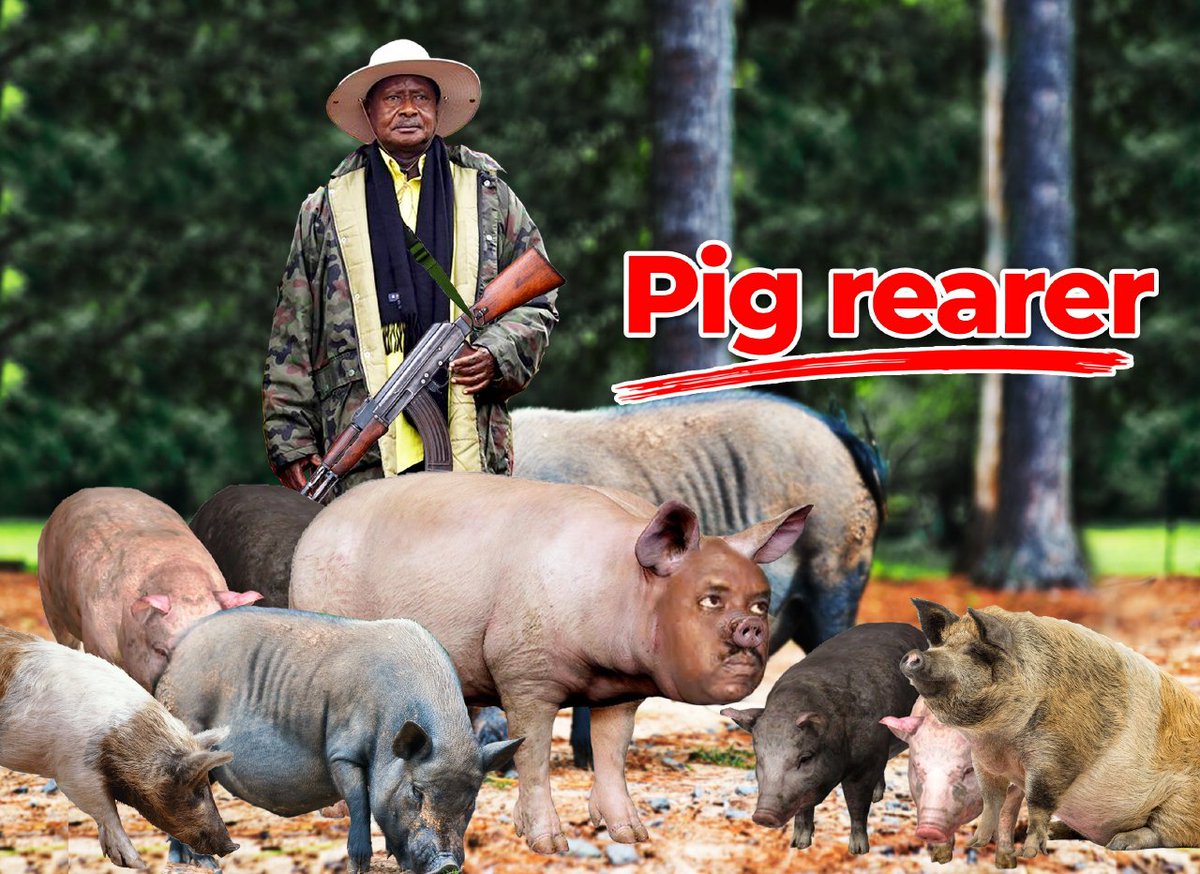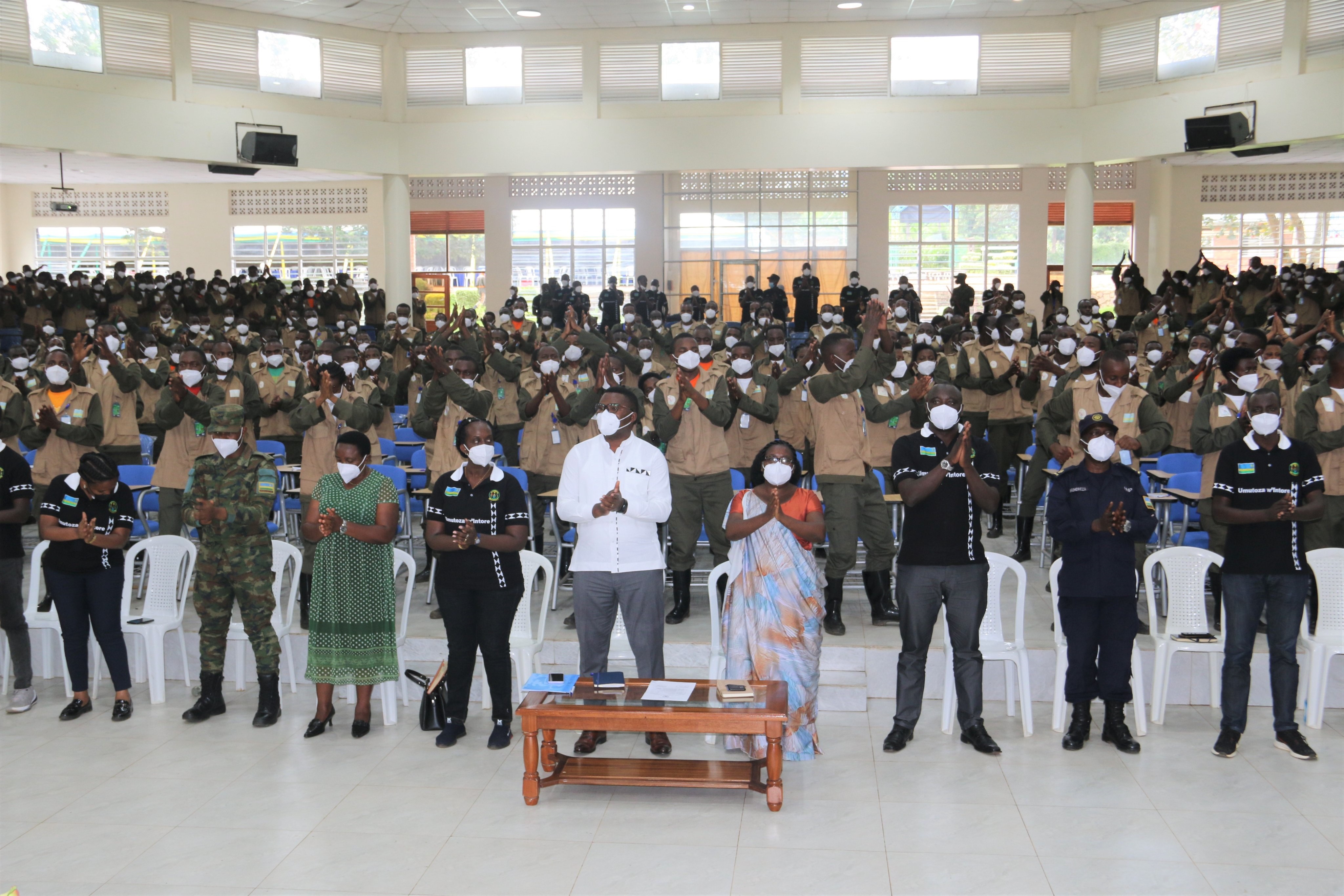Regional
Rwanda’s political problem is genocide ideology
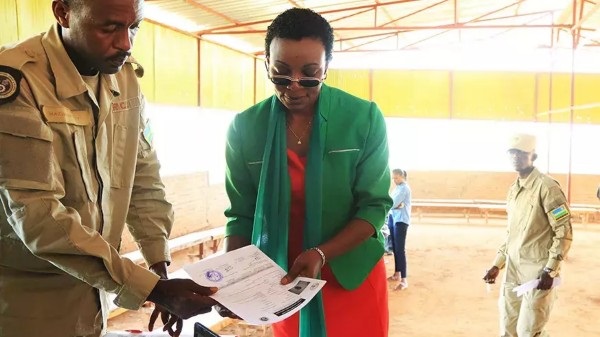
Many
Rwandans were astonished by Victoire Ingabire Umuhoza’s op-ed “Intra-Rwandan
dialogue is crucial for peace in the Great Lakes”
for Aljazeera. I have followed governance in Rwanda closely over the past
decade and also done research on politics and conflict in the Great Lakes
region. I feel compelled to offer the readers a different perspective. Ms
Umuhoza makes several claims about accountability and political exclusion in
Rwanda and their impact on the region. None of them can stand up to close
scrutiny. Here is why.
The
manner in which Ms Umuhoza burst onto Rwanda’s political scene is as important
as the style of politics she has chosen to pursue. It is a style that will not
find space in “the New Rwanda”, the subject of analysis in her article. On the
day of her arrival in Kigali, in January 2010, Ms Umuhoza did what most foreign
dignitaries visiting the country do: she went to the Kigali Genocide Memorial.
She did so ostensibly to pay her respects to the victims of the 1994 genocide
against the Tutsi some of whose remains have been interred there.
There
are several similar memorials scattered across the country. She chose the most
well-known and the one most visitors go to for purposes of paying respect to
the victims of the genocide and to show remorse for humanity’s collective
failure to intervene and stop the killings.
But
paying her respects is not what Ms Umuhoza did. Instead, she chose to stand on
the steps of the memorial and tell journalists that, now that she had seen the
memorial for Tutsis, she would like to be shown the memorial for Hutus. She
asked rhetorically: “when is our turn?” (ibyacu
se tuzabigeraho ryari”?).
Her
pronouncements were an affront to genocide survivors, a deliberate poke in a
fresh wound. Beyond the moral aspects of her actions, however, the Prosecutor
General’s office determined that her statements had contravened the laws
against belittling the genocide. She was arrested. But her problems did not end
at belittling the genocide.
Additional
charges pertained to collaborating
with the FDLR (an organisation formed by genocide
fugitives who fled to the Democratic Republic of the Congo), which the US
Government has also officially designated as a terrorist organisation. This
outfit seeks to overthrow the current Government of Rwanda. It is important to
recall that much of the information linking Ms Umuhoza to the FDLR was provided
by the Dutch government through judicial cooperation with the
Prosecutor-General’s Office. In 2012, she was sentenced to 15 years in jail. In
September 2018, she was released
on presidential clemency.
This
background is significant in at least two ways. First, for the first time ever,
Ms Umuhoza recognises that the legitimacy of Rwanda’s “consensus democracy”
emanates from the popular mandate derived from “consultations [that] have been
the guiding philosophies of the governance implemented by the RPF over the past
two decades.” These consultations, commonly referred to as Urugwiro meetings,
took place between 1998-99 and set the trajectory of post genocide Rwanda’s
governance.
For
long-time observers of politics in Rwanda, Ms Umuhoza’s recognition is
surprising given the fact that, since her touchdown in Kigali in 2010, Ms
Umuhoza had insisted on the politics of confrontation which the consultations –
to which she refers - rejected because it was a key factor in the social
polarization that led to the 1994 genocide against the Tutsi.
In
recognising the legitimacy of the current government’s approach to governance,
Ms Umuhoza suggests that she does not seek to dismantle the arrangements in
place, but rather to advocate for more inclusion beyond the “opposition
affiliated with the ruling party,” as she put it. The objective of the
consensus model is for political parties to come together in “a constant quest
for solutions through dialogue and consensus.”
Ms
Umuhoza does not understand that affiliation with the RPF is not required.
However, dialogue and consensus are a requirement as per article 10 of the
preamble of the Constitution of the Republic of Rwanda. For this reason, the
Green Party, which has long rejected suggestions that it is allied with the
ruling Rwanda Patriotic Front, is a member of the Forum for Political Parties.
The Forum
is the platform through which political parties engage
in dialogue. Dr Frank Habineza, the Green party leader, is its spokesman.
Ms
Umuhoza wants it both ways when she asserts the legitimacy of the consensus
democracy while rejecting its expression. She should know that the consensus
democracy model cannot be inclusive to the extent of countering its provisions.
A key provision of the “Urugwiro Village meetings” was that political parties
that espouse genocide ideology would be excluded. She is right, however,
in her observation that there are growing voices in Rwanda and abroad that are
pushing for the “transformation” of Rwanda’s political scenery in a direction
opposite to that prescribed by the Urugwiro consultations. Is it by accident
that this happens at the time of the resurgence
of genocide ideology inside Rwanda, in the region, and
abroad?
The
second significant, albeit subtle, aspect of Ms Umuhoza’s article is the
reference to the “Tutsi’s genocide of 1994,” which suggests that she has
abandoned her double genocide conspiracy theory that every credible observer of
politics in Rwanda has rejected. Even French
authorities were categorical that the genocide was against the Tutsi while
acknowledging France’s overwhelming responsibility in the crime.
However, on this too, Ms Umuhoza wants to have it both ways. As she
acknowledges the victims of the genocide, she bemoans “The lack of public and
official remembrance of the victims of war crimes committed in Rwanda before,
during, and after the genocide against the Tutsis”.
She
argues that these “are creating conflicting views among citizens today,”. She
adds: “This creates social grievances and weakens trust and cooperation among
Rwandans.” Clearly, the demand for official commemoration of “war crimes”
alongside the commemoration of the genocide aims at creating parity between
genocide and war crimes. The objective is ultimately to establish moral
equivalence between the two, thereby indirectly validating the claim of “double
genocide”.
To
understand the controversial nature of Ms Umuhoza’s reasoning, one would have
to imagine a situation where a politician in Germany stakes his political
career on the demand that commemoration of the Holocaust can only bring about
reconciliation if it accommodates the commemoration of Germans who died during
World War II.
If
that politician were riding a wave of Nazi resurgence, they would be accused of
political opportunism that runs counter to European values. And if Germany were
as severe in their approach to Nazism as Rwanda is with genocide ideology, he
would likely be prosecuted for belittling the Holocaust. Both the genocide
ideology in Rwanda and Nazism have, as we know, led to unimaginable destruction
of lives. Genocide ideology or the Hutu Power ideology that promotes the
imposition of ethnic majority rule in Rwanda and accommodates the elimination
of Tutsis as a political solution to society’s resistance and its German
equivalent, Nazism, which promotes the racial superiority of the Aryan, should
have no place in politics.
If
Ms. Umuhoza’s argument were that all political crimes should be punished before
the country moves forward and that failure to do so “creates social grievances
and weakens trust and cooperation among Rwandans,” then few people would be
against this moral cause.
However,
this cause cannot be selective. Pushed to its logical conclusion, Ms Umuhoza’s
argument would hold that, for the country to truly overcome social grievances,
accountability would have to extend to the atrocities committed by successive
governments in 1959, 1961-62, 1972, 1973, which to date remain unpunished.
Therefore, the selective nature of her demand suggests that it is not a quest
for moral purity but a manifestation of political opportunism that disregards
context. Otherwise, the official commemoration of genocide – as is the case
with the Holocaust– is a demonstration of moral difference in crimes.
Rwanda’s
political landscape is far from perfect. However, it has two aspects that merit
highlighting. One is the failure by those who pose as political opposition to
meet the RPF on its strongest terrain and to compete there. That terrain is the
RPF’s preoccupation with transforming the lives of Rwandans and ensuring
accountability around the delivery of public services. There is a lot of
political mileage to gain on this terrain.
However,
it is more attractive for politicians whose motive is to transform the
socioeconomic outcomes of Rwandans to operate within the consensus governance
model than it is to confront it. On the other hand, those who have rejected
Rwanda’s consensus democracy have found themselves attracted to genocide
ideology in the belief that it will provide a shortcut to people’s hearts and
minds; they see the ideology as the soft underbelly of the RPF and a means of
circumventing the heavy lifting needed to confront the ruling party at its
strength: the preoccupation with transforming lives.
But
genocide ideology is not the RPF’s underbelly; it is the entire society’s.
Therefore, those who seek to reintroduce it into politics are mistaken because
while they might succeed at destroying the reconciliation efforts of the last
27 years, it is unlikely that they will dislodge the object of their distaste,
the RPF, from power – certainly not in the near future.
Two
decades ago, at the national consultations, Rwandans identified genocide
ideology as the biggest factor responsible for continuing social cleavages.
This has not changed. Its resurgence calls for the deepening, not relaxing, of
the consensus model by keeping out the type of politics that were rejected by
the popular consultations.
If I
were Ms Umuhoza’s political strategist, I would urge her to call for national
consultations to uproot genocide ideology from Rwandan society as a means to
ensure that it doesn’t spill over into the DRC where the failure of the
international community - despite a MONUSCO force that has been deployed there
for more than two decades - to reign in those who committed the genocide in
1994, the FDLR, is inexcusable.
Source:
www.newtimes.co.rw


